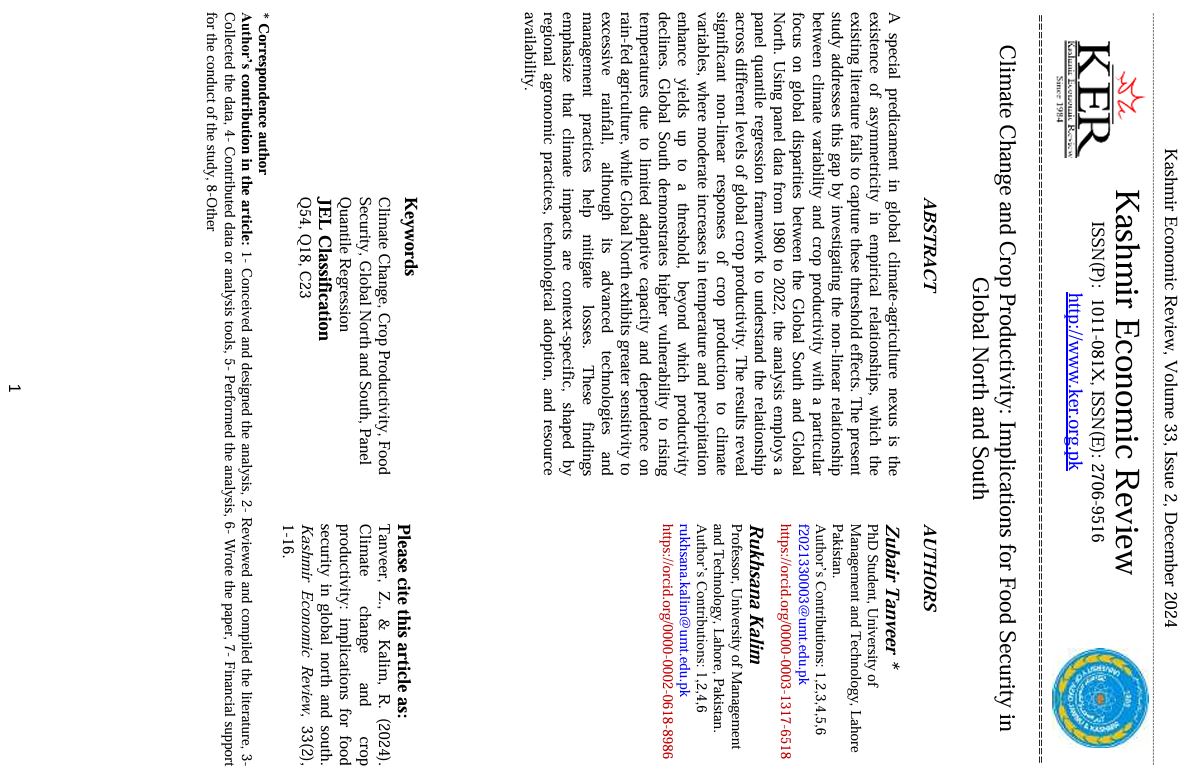Climate Change and Crop Productivity: Implications for Food Security in Global North and South
##plugins.themes.bootstrap3.article.main##
Özet
A special predicament in global climate-agriculture nexus is the
existence of asymmetricity in empirical relationships, which the
existing literature fails to capture these threshold effects. The present
study addresses this gap by investigating the non-linear relationship
between climate variability and crop productivity with a particular
focus on global disparities between the Global South and Global
North. Using panel data from 1980 to 2022, the analysis employs a
panel quantile regression framework to understand the relationship
across different levels of global crop productivity. The results reveal
significant non-linear responses of crop production to climate
variables, where moderate increases in temperature and precipitation
enhance yields up to a threshold, beyond which productivity
declines. Global South demonstrates higher vulnerability to rising
temperatures due to limited adaptive capacity and dependence on
rain-fed agriculture, while Global North exhibits greater sensitivity to
excessive rainfall, although its advanced technologies and
management practices help mitigate losses. These findings
emphasize that climate impacts are context-specific, shaped by
regional agronomic practices, technological adoption, and resource
availability.
##plugins.themes.bootstrap3.article.details##

Bu çalışma Creative Commons Attribution-ShareAlike 4.0 International License ile lisanslanmıştır.

